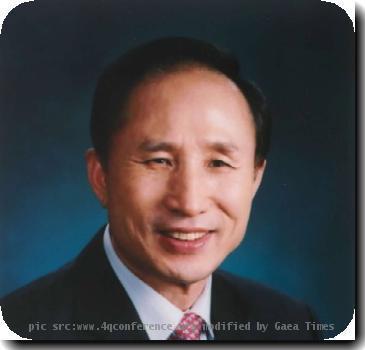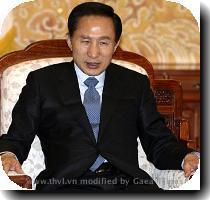NKorea’s state TV airs 3 World Cup games _ but not those involving SKorea or US
By Jean H. Lee, APSunday, June 13, 2010
NKorean TV airs 3 World Cup matches
JOHANNESBURG — North Korean state television has aired unprecedented coverage of three World Cup matches as well as snippets from the opening ceremony — but not the games played by wartime enemies South Korea and the United States.
North Korea has a team at the World Cup finals for the first time since 1966, but it has been unclear how closely North Koreans would be able to follow the tournament and their team’s progress.
The communist country has just one state-run TV channel, and foreign radio broadcasts are banned. South Korea’s SBS television, which owns the broadcast rights for the entire Korean peninsula, said it would not feed live coverage to North Korea as in the past due to political tensions.
Still, “World Cup fever” is in full swing in North Korea and among North Koreans living overseas, according to the Choson Sinbo, a pro-Pyongyang, Korean-language newspaper published in Japan.
On Saturday, Pyongyang’s Korean Central Broadcasting began airing World Cup footage from South Africa. Friday’s opening match between Mexico and host South Africa aired late Saturday, and the game between France and Uruguay was shown Sunday afternoon.
The match Saturday between Argentina and Nigeria was to air later Sunday, according to the station’s program schedule. It was not immediately clear how North Korea obtained the footage. SBS said it was looking into the matter.
FIFA said it is discussing access to the satellite signal for the North Korean public broadcaster with the Asia-Pacific Broadcasting Union (ABU).
Conspicuously missing from the broadcasting lineup: games between South Korea and Greece, and the United States and England.
Communist North Korea and U.S.-backed South Korea fought a bitter three-year war that ended in a truce, not a peace treaty, in 1953. Washington and Seoul do not have diplomatic relations with Pyongyang.
Relations between the two Koreas warmed during the decade-long “sunshine” era under two liberal Seoul administrations. As part of reconciliation efforts, South Korean broadcasters transmitted live coverage of World Cup matches to the North via satellite.
However, ties cooled since conservative South Korean President Lee Myung-bak took office in 2008 saying aid to impoverished North Korea must hinge on Pyongyang’s commitment to nuclear disarmament.
The sinking of a South Korean warship that killed 46 sailors in March plunged relations to their lowest point in decades. A five-nation team of investigators concluded last month that a North Korean-made torpedo sank the Cheonan.
South Korea responded to the provocation by taking North Korea to the U.N. Security Council for punishment.
A multinational investigation led by South Korea concluded last month that North Korea was responsible. The North has denied responsibility and threatened to respond to South Korean retaliatory measures with war.
Negotiations between broadcaster SBS and North Korean state TV have been suspended since the incident, senior SBS official Yang Chul-hoon said in Seoul.
The World Cup broadcasts, monitored in Seoul by The Associated Press, showed the full matches but edited out the halftime breaks — far more footage aired than during past World Cups.
The 8 p.m. newscast Saturday also showed scenes from the opening ceremony at Soccer City, including aerial shots, crowd scenes and speeches by FIFA president Sepp Blatter and South African President Jacob Zuma.
Broadcaster APTN also has aired footage of the North Korean team training at Makhulong Stadium and working out at their hotel gym as they prepare for their first match Tuesday against Brazil.
Soccer has been hugely popular in North Korea since 1966, defectors say. North Korean TV typically airs just snippets of taped footage, but fans who live near North Korea’s border with China sometimes can get a TV signal from Chinese or South Korean broadcasts.
In one South Korean filmmaker’s imagination, North Korean soldiers risk their lives to watch the World Cup.
In Kye Yoon-shik’s film “Dreams Come True,” now out in South Korean theaters, North Korean soldiers posted to the Demilitarized Zone spend their free time kicking around a soccer ball, and even meet up for a surreptitious match with their South Korean counterparts.
They’re so beset by World Cup fever they risk their lives to rig up illicit broadcasts of South Korean TV so they can follow South Korea’s historic advance to the World Cup semifinals in 2002.
Associated Press writers Kwang-tae Kim, Hyung-jin Kim and Sangwon Yoon contributed to this report from Seoul, South Korea.
Tags: 2010 Fifa World Cup, Africa, Asia, East Asia, Events, Fifa, Government Regulations, Industry Regulation, International Incidents, International Soccer, Johannesburg, Latin America And Caribbean, Lee Myung-bak, North America, North Korea, Pyongyang, Seoul, South Africa, South America, South Korea, Southern Africa, United States, World cup

